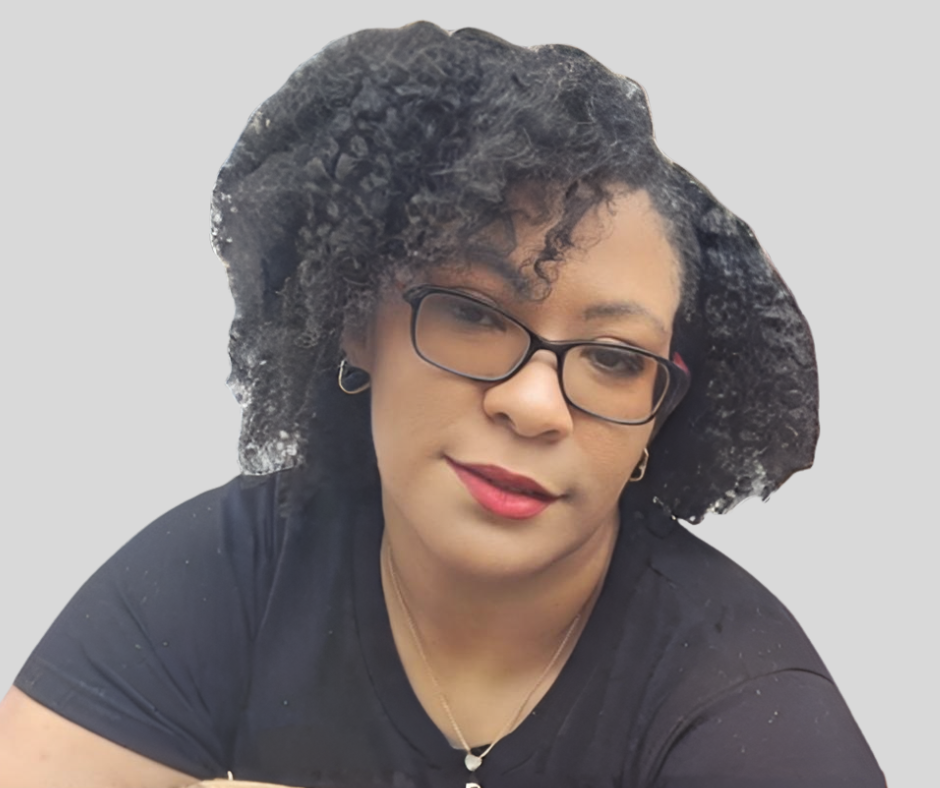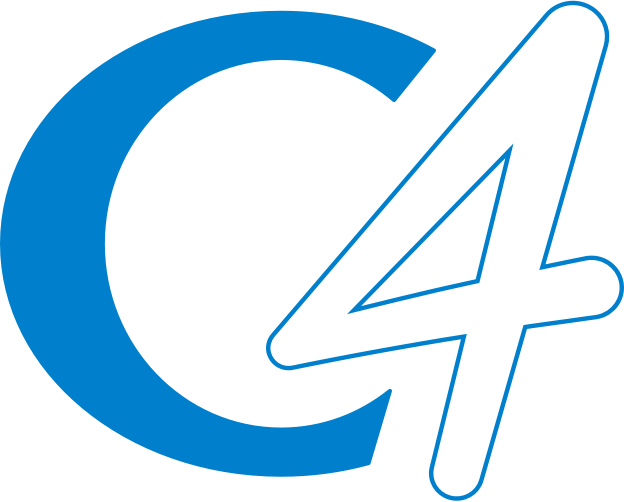Blog
Employee Spotlight: Pedro Arrendondo
We sat down with Pedro Arrendondo to talk about his work as a Peer Engagement Specialist and the importance of the role to C4’s approach and philosophy. Arrendondo lives in the Chicago suburbs and enjoys playing Baldur’s Gate 3 and Elden Ring and taking photos of entertaining vanity license plates. This interview has been edited for length and clarity.
C4: Tell us a bit about yourself. Where are you from? What’s your life like outside of work?
Pedro Arrendondo: I was born in Mexico, but I’ve been in the U.S. most of my life. I’m 33 years old now, and I’ve been in the U.S. since I was 2, so I’m pretty integrated into American society at this point. I’m starting to lose a little bit of Spanish, which is my first language, but I spend so much time speaking English with my peers that my culture is slowly fading away, and it’s a challenge for me to keep that part of myself alive. I only speak Spanish with my mom, my sisters, and my dad. I did not go to college to get any type of credentials for social work or mental health work, although I plan on doing that once I settle into Chicago. I’m planning to move here in the next couple of months. My life outside of work is pretty chill, for the most part. I like to run, work out, and play video games. I do self-care and decompressing after a stressful day, not just by playing video games, but I play guitar and I can sing a little bit. I jam with some friends every now and then on the weekends. I spend time with my family and my niece and nephew. Overall, my life is pretty chill; I have a good work-life balance here at C4, and I still have time to take for myself and do the things I enjoy. I like to journal as well. I go to therapy once a week, and the journaling is something that my therapist has had me incorporate into my daily life. I like to take care of myself as much as I can, mentally and physically.
C4: How long have you been at C4, and what positions have you held here?
PA: I’ve been at C4 for just over two years, and I’ve been a Peer Engagement Specialist the whole time. This position doesn’t require a degree, but it does require lived experience, which I have plenty of, being a consumer of mental health services myself throughout my life. I’ve gotten really far in my recovery journey, and that’s one of the reasons I was chosen when this position popped up. I hope to stay with C4 until I get my bachelor’s in social work, and then I can move over to a position that requires me to provide therapy services and evaluations. I’ve been a little hesitant about that, because I’m a little ambivalent about performing evaluations, having to diagnose people, or possibly having to have clients be medically incarcerated. But I hope to stay with C4 and move forward with my career at the agency.
C4: And what does a typical day look like for you in this role?
PA: Things have changed a lot. We’ve had some new programs come to fruition during my time here, and things have continued to evolve as time goes on. Right now, I clock in at 9:30 and go through all my emails, our supervisor sends out a team email and checks in with everybody, and we might be given a task to start the day. If I’m not working on that in the morning, I usually prepare a list of clients or guardians I need to follow up with, so I have a game plan for the rest of my day. Throughout the day, I make my way through that list, enter my notes, and see if there are trainings I need to get caught up on. And after that, I just wait to see if there are any fires that need to be put out. I do belong to the Rapid Response department, sometimes there are crisis situations that we need to respond to, in person or over the phone. On days where I have my own clients to meet up with, I’ll incorporate that into my day. I meet them virtually, over the phone, sometimes out in the field, at their homes, at Starbucks, maybe the park or the library. The more I say, the more I realize it’s a little hard to paint a picture, because depending on the day or the week, I can be pulled in tons of different directions. But I do all those things, and then hope there’s no need for me to respond to a crisis. We’re hoping that no one is in need of that kind of response, but we’re always prepared for that situation to arise.
C4: Is there an experience you had with a client or another C4 staff member that helped you grow or changed your perspective?
PA: I have a story that’s maybe not so much about growth, but a validation of why I’m in my role. I had a client who had a diagnosis of bipolar disorder. They were also living with depression and anxiety, among other things. When we first met several months ago, they were at a crossroads in their life as to what careers to pursue, should they go out of state for an opportunity, should they stay in Chicago; they were also still dealing with the loss of a relationship. A lot of things that were debilitating for them as an individual, making it difficult for them to have a good quality of life. I worked with this person over the course of several months, building them up, supporting them in the pursuit of their goals and any achievements they were trying to accomplish related to those goals. It’s hard to describe just how much this person came to develop in the time we were working together. They became very confident and very sure of themselves. I helped them with their resume, I helped them apply for jobs. I provided emotional support and reassured them they were on the right track for where they wanted to be in life. And they ended up finding a good job out of state that they may not have pursued if not for the support I provided. They thanked me immensely in the days leading up to their departure. I was very sad to see them go, but I have a sense of pride in all the work I was able to do as a person to get them to a level where they felt confident enough in themselves that they could thrive in the world despite their diagnosis and the struggles they had been experiencing up to the point they met me and while we were still engaging in our sessions. And I felt validated. I’ve had a lot of clients who I touch base with, I might provide some reassurance, help them process a bit, and that’s it. We do one or two sessions, and I lose touch with them afterwards. It felt a little defeating at first, but one out of every 100 people you interact with will actually take full advantage of the services you provide and participate in them to the point where they’re getting results. And this happened with this person. After nearly two years of being in the job, I finally felt good about having helped somebody from start to finish. That was a great experience that further strengthened my resolve to keep doing it, to continue to reach out to people, to keep doing it, in hopes that there will be another person waiting in the wings prepared to put in the work necessary to accomplish their goals. Like, this is why I’m here. This is what I signed up for. I’m doing the work I’m excited about. It empowered me.
C4: Is there anything you want people outside your sector to know about the work you do or any misconceptions you’d like to clear up?
PA: My expertise and my experience are just as valid as the credentials that our clinicians have. Just because I don’t have a master’s or a bachelor’s or anything like that doesn’t mean what I bring to the table isn’t valid. As Peer Engagement Specialists, we strongly advocate for clients. We have been in their shoes. And I know some clinicians have lived experience, but our approach tends to feel a lot more catered to the individual. We don’t have the same training and education as people who’ve gone to college for this sort of thing. It’s on a much more personal level; the language we use and the approach we have isn’t clinical. It doesn’t feel that way. It’s a more natural and organic experience when you’re working with a Peer Engagement Specialist. Some of us have been hospitalized, some of us have been diagnosed, some of us are taking medication. We all have experienced so much in our lives that can help us to relate to our clients and to empathize with them as well, on the level that I really don’t think you’d be able to get anywhere else. And if we’re talking about having a trauma-informed approach to therapy and services here at C4, I feel that having Peer Engagement Specialists on staff is invaluable. We have a way with words when it comes to touching the lives of our clients that I feel you wouldn’t be able to get through a typical clinician interaction. When we take the van out for mobile crisis response, we send out a peer with the clinician to make the experience as human as possible when we de-escalate somebody. If you’re engaging with somebody and using this very person-centered approach to things, it helps them to feel safer in sharing their experience. It makes the experience a lot less stigmatized if you can say, “Hey, I can relate. I’ve had a similar experience.” It can open a lot of doors. Some people don’t want to talk to a clinician because it can feel like they’re being assessed, so that’s part of what we bring to the table.



